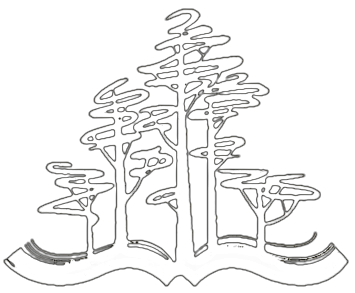Summer School on the Russian Literature.
2023. Vol. 19. № 3-4
The article examines three short fragments from the poem by Osip Mandelstam „I will not see the famous ‘Phaedra’...“. Proceeding from previous studies of the poem, the author identifies new aspects of the grammatical, verse, and rhetorical structure of the three fragments in light of their intertextual connections, Mandelstam’s favorite techniques and the invariants of his poetic world. The primary focus is on the two lines: „And, indifferent to the actors’ hustling, Gathering the harvest of applause...“; a new interpretation of this phrase is achieved by introducing the opposition of „objective vs. subjective” presence of the poem’s speaker (= lyrical subject) in the „desired/ other chronotope.“
Keywords: Mansdelstam, Lermontov, Racine, Pushkin, structure of minor segments, intertextuality, rhyming, poetry of grammar, dangling participles, presence/ absence, invariant motifs.
Keywords: Mansdelstam, Lermontov, Racine, Pushkin, structure of minor segments, intertextuality, rhyming, poetry of grammar, dangling participles, presence/ absence, invariant motifs.
Alexander Zholkovsky
Three Minor Secrets of Mandelstam’s Famous „Phaedra“
The article refers to the consideration of the motif structure of the lyrics by A.P. Tsvetkov, the motif of cinema and its semantic correlates to be exact. The article gives an analysis of the poems central to the selected topic, defines the main features of cinematic imagery, indicates its role and meaning.
Key words: „Moscow time“, A. Tsvetkov, motif, the motif of cinema, cinematic imagery.
Key words: „Moscow time“, A. Tsvetkov, motif, the motif of cinema, cinematic imagery.
Alena Korableva
Cinema in the Motif Structure of Poetry by Alexei Tsvetkov
The article considers the category of time in A. P. Sumarokov’s tragedies „Khorev“, „Hamlet“, „Sinav and Truvor“, „Artistona“ and „Semira“. The categories of past, present and future are analyzed separately, with chronological segments that are identical in various tragedies, which allows us to talk about variants of the general model of time in this genre. The central line of development of the action is the transition from the ideal distant past (the „golden age“) to a bright future (connected both with the fate of the heroes and with the historical perspective in general) through the hardships of the recent past, the end of which is called upon to be put to an end by „this day“, demonstrated in stage — at the same time the peak of the heroes’ suffering and their overcoming. There is the similarity between this chronological model and the ode of the Elizabethan era. The philosophical background of the category of time reveals the deep, metaphysical side of the conflict of tragedies: Sumarokov’s time is opposed to eternity, „temporary“ earthly conditions appear in a new light against the background of extraterrestrial, divine reality.
Keywords: tragedy, Russian 18th century, A.P. Sumarokov, category of time, classicism.
Keywords: tragedy, Russian 18th century, A.P. Sumarokov, category of time, classicism.
Andrey Petrov
„To Renew the Golden Age of Joy in the City“: Time in the Early Tragedies of A. P. Sumarokov
The category of the comic is one of the most complex and controversial in scientific discourse. In this regard, when researchers use the genre definition of „comic opera“, terminological homonymy often arises, which leads to a distortion of ideas about this genre of musical theatre of the XVIII century. This article examines the prerequisites for the emergence of such a homonymy, analyzes the literary and musical situation of the end of the XVIII century in Russia and European countries and puts forward a number of hypotheses that correct the traditional picture of the literary process of the epoch.
Keywords: comic opera, musical theatre, dramatic art, the Age of Enlightenment, XVIIIth century.
Keywords: comic opera, musical theatre, dramatic art, the Age of Enlightenment, XVIIIth century.
Alina Shiyan
„Non-Comic“ Comic Opera: Towards the Formulation of the Problem
The article is devoted to the study of the reasons and functions of the use by the writer of motifs, images from the texts of N. S. Gumilyov („Sixth Sense“) and A. N. Vertinsky („Purple Negro“). A historical and cultural commentary is given, which helps to understand how the work of Sad Piero was perceived in the 1920s and 1930s. An intertextual analysis of the three above-mentioned works is carried out, as well as suggestions are made about the identification of the author of the story. It is assumed that the signature „Sen. Derikhin“ is used by as a literary mask.
Keywords: A. N. Vertinsky, N. S. Gumilyov, intellectual, „hero-child“.
Keywords: A. N. Vertinsky, N. S. Gumilyov, intellectual, „hero-child“.
Victoria Bodenchuk
Motives of Poetry of the Silver Age in the Story of the Proletarian Writer Sen. Derikhin
This article discusses the ways of constructing the sacred space in the church historical literature about monasteries. As a result of the analysis of two texts of this kind (the Story of Sarov Monastery and the Chronicle of Diveevsky Monastery) the following conclusions have been made: on the one hand, both texts contain a common spatial and narrative structure, while on the other hand, the formal ways in which this structure is concretized are highly variable in each narrative.
Keywords: Sarov Monastery, Diveevsky Monastery, sacred space, stories about monasteries, hagiographic topics, translatio religionis.
Keywords: Sarov Monastery, Diveevsky Monastery, sacred space, stories about monasteries, hagiographic topics, translatio religionis.
Zakhar Kornilov
Sacred Space in Stories About Monasteries: Sarov and Diveevo
The article explores the image of the mammoth in scientific worldview of V. N. Tatischev. The research is based on the material of Tatischev’s work „Skazanije o zvere mamonte“ (1730) involving its Latin version „Mamontova kost“. As a result of the research, Tatischev’s strategies of debunking the myth about mammoths are highlighted and some cultural allusions in the work are commented.
Keywords: V. N. Tatischev, mammoth, paleontology, the XVIIIth century.
Keywords: V. N. Tatischev, mammoth, paleontology, the XVIIIth century.
Zolotaryova Varvara, Trofimov Artyom
Exotic Paleontology of the XVIIIth Century: V. N. Tatischev and Mammoths
The aim of the article is to identify the structural and conceptual discrepancies underlying the script of the feature film „Mertvyj dom“ (1932), directed by Vasilij Fеdorov. The script is written by Viktor Shklovskij (based on Dostoevskij’s novel „Zapiski iz Mertvogo doma“). The process of adapting and comparing different versions of the script thus becomes the focus of the text, from which Shklovskij’s journey emerges. Starting from a broader exploration of his work as a screenwriter, we will emphasise the differences between Shklovskij’s intended text and the final work presented by the director to the public. Preliminary analyses of the versions will focus on four of the six, the only ones that were available to us.
Keywords: Viktor Shklovskij, screenplay, Fedor Dostoevskij, literary film adaptation, Notes from the House of the Dead.
Keywords: Viktor Shklovskij, screenplay, Fedor Dostoevskij, literary film adaptation, Notes from the House of the Dead.
Marta Capossela
Viktor Shklovsky as a Screenwriter.
Preliminary Notes on the Script „Mertvyj Dom“ (1932)
Preliminary Notes on the Script „Mertvyj Dom“ (1932)
The article is devoted to the populist discourse in the early works of I. A. Bunin. The writer, who entered literature along the „narodnik“ (peasant-oriented) path, in the first years of his literary career was strictly associated with colleagues in the industry. Nevertheless, already in the 00s of the 20th century, Bunin publicly tried in every possible way to get away from the proposed conventions of the narodnik (peasant-oriented) literature, and later in emigration, he would deny his close connection with the narodnik (peasant-oriented) circles. In fact, already in the 90s, Bunin the writer was „cramped“ within the framework of the narodnik (peasant-oriented) literature. The article attempts to describe Bunin’s poetics within the framework of two exaggerated poles of the narodnik (peasant-oriented) poetics: the realistic-gloomy poetics of G. I. Uspenskii and N. N. Zlatovratskii.
Keywords: I. A. Bunin, G. I. Uspenskii, N. N. Zlatovratskii, narodniks, poetics.
Keywords: I. A. Bunin, G. I. Uspenskii, N. N. Zlatovratskii, narodniks, poetics.
Maksim Shavlinsky
Between N. N. Zlatovratskii and G. I. Uspenskii: Early Work of I. A. Bunin and the Narodnik (Peasant-oriented) Literature
The article talks about the leitmotifs of N. R. Erdman’s comedy „The Suicide“, connected with the folk song to K. F. Ryleyev’s poem „The Death of Yermak“ and the important for the play image of „gogol-mogol“ (eggnog). The example of one episode demonstrates the most striking features of the author’s poetics: burlesque and parody, contrasts, hyperbole, puns, traditions of folk theater and literary allusions.
Keywords: 20th century drama, N. R. Erdman, leitmotif analysis, literary allusions, puns.
Keywords: 20th century drama, N. R. Erdman, leitmotif analysis, literary allusions, puns.
Nikita Kosyanenko
„The storm roared...“: About Some Leitmotifs of N. R. Erdman’s Comedy „Suicide“
This excerpt of series of historical and literary commentary to the poet’s notebooks examines her literary relationships with a member of the Guild of Poets Georgii Viktorovich Adamovich.
Keywords: Anna Akhmatova, Georgii Adamovich, The Guild of Poets.
Keywords: Anna Akhmatova, Georgii Adamovich, The Guild of Poets.
Roman Timenchik
Towards the Index of Anna Akhmatova’s Notebooks: Georgii Adamovich
The article is devoted to the history of the story „About Basil the Great, how he baptized a Jew“, presented as part of the „Consolidated Patericon“, an original compilation collection of hagiographic texts that are part of various translated patericons. The author refers to the textological study of the „Consolidated Patericon“ kept in the collection of the Olonets Theological Seminary of the Russian Federation, determines its edition and composition, and also follows a plot-compositional analysis of the story about the baptism of a Jew.
Keywords: Consolidated patericon, Olonets copy, Basil the Great, the narrative of the baptism of a Jew.
Keywords: Consolidated patericon, Olonets copy, Basil the Great, the narrative of the baptism of a Jew.
Ul’yana Burankova
The Story „About Basil the Great, how he Baptized a Jew“ as Part of the „Consolidated Patericon“
The article examines the role of text within text in G. Yakhina’s novels „Zuleikha opens her eyes“, „My Children“, „Echelon to Samarkand“. By establishing a connection between the main and the inserted text (fairy tales and a lullaby) at the plot-motive, figurative levels and in terms of chronotope, a conclusion is made about the prognostic potential of the fairy tale about the Family (in the novel „Zuleikha opens her eyes“), the tales of J. Bach (in „My Children“) and the song „Sleep, my boy...“ (in „Echelon to Samarkand“).
Keywords: G. Sh. Yakhina, insert text, main text, fairy tale, lullaby.
Keywords: G. Sh. Yakhina, insert text, main text, fairy tale, lullaby.
Emilia Shpak
The Predictive Function of the Inserted Text in the Novels of G. Sh. Yakhina
Contacts
summerschool@list.ru
В оформлении сайта использованы материалы Freepik.


